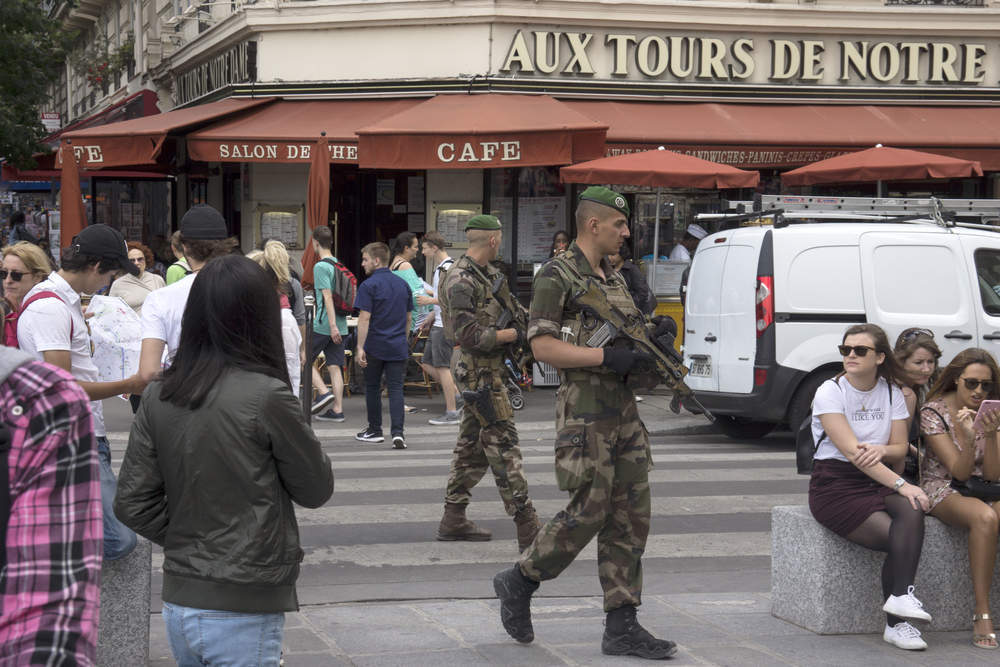
Paris has been the target of several terrorist attacks since 2015. Over 230 people have died as a result of jihadi attacks and many of the terrorists were known to authorities.
This spate of attacks has resulted in accusations that the French government isn’t doing enough to prevent them.
A 2016 parliamentary investigation into the Paris terrorist attacks the previous year revealed the error in miscommunication between France’s multiple intelligence agencies.
One individual, Amedy Coulibaly, who killed several people in the 2015 attacks had previously spent time in jail and had been flagged up by the prison system as being radicalised, however this information was not passed on to intelligence agencies.
The commission recommended a complete restructuring of the intelligence service, from six separate intelligence units to one single agency.
Since newly elected French president Emmanuel Macron came into power, a number of changes have taken place.

US Tariffs are shifting - will you react or anticipate?
Don’t let policy changes catch you off guard. Stay proactive with real-time data and expert analysis.
By GlobalDataWhat has Macron moved to do?
In his election manifesto Macron pledged to establish a terrorism task force and has since followed through with the National Counter Terrorism Centre, led by former intelligence official Pierre Bousquet de Florian.
The team is made up of 20 analysts who review intelligence gathered by the interior, defence, and justice ministries and facilitate the transfer of information between these three units.
In June and then again last week Macron met with British prime minister Theresa May in Paris to discuss their joint campaign to tackle online radicalisation.
They discussed methods to develop frameworks in association with tech companies to prevent extremism online.
The two leaders intended to create a new legal liability for tech companies such as Facebook and Google — the failure of these companies to eradicate inflammatory content would lead to various penalties and fines.
Meanwhile, at the Eiffel Tower, building of a €20m ($23m) bomb-proof glass wall has begun.
The three metre high wall is being installed to provide protection for the famous Parisian landmark, a potential target for terrorists.
With the Olympic Games set for Paris in 2024, more similar work will begin to take place across the city to increase security in popular tourist areas.
Perhaps the most significant change is the introduction of new anti-terrorism legislation, commencing 1 November.
In June, Macron told the president of the European Court of Human Rights that the anti-terrorism legislation that he planned to pass this year respected the rule of law and public freedom.
He also said the adaptation of current legislation to the challenge of terrorism would be carried out in full compliance with the rules of the court. The bill is set to replace the emergency state which has been in place since November 2015 following the Paris attacks.
According to bill author French interior minister, Gerard Collomb, by July, seven terrorist attacks had been prevented since the start of this year.
By September, this number had risen to 12.
Collomb has used this statistic to justify the need for a sixth and final extension of the emergency state, enough time to put in place the new anti-terrorist laws.
However, the new laws see many measures from the emergency state set to be inscribed in the common law. House arrests, raids and searches may all be ordered by a commissioner, without having to go through a judge.
It also introduces a new legal framework for surveillance of wireless communications and expands the possibilities for control in border areas.
Despite the go-ahead from France’s top administrative court, there has been an extremely large amount of debate over the new bill and it has been modified more than three times.
Meanwhile, a time restriction of four years has been set.
Each year, an evaluation will take place to determine the usefulness of these measures.
The bill has been condemned by Amnesty International, the Human Right League, the Judges Trade Union and the European Commissioner for Human Rights, Nils Muiznieks.
However, apart from the opposition of several NGO’s and members of parliament, public opinion has not sparked up a debate over the legislation.
The fine details are still unknown, but overall the French seem willing to strengthen security.
According to a poll by Ipsos, after the second round of legislation debate, 56 percent of people trust the government’s security measures.







